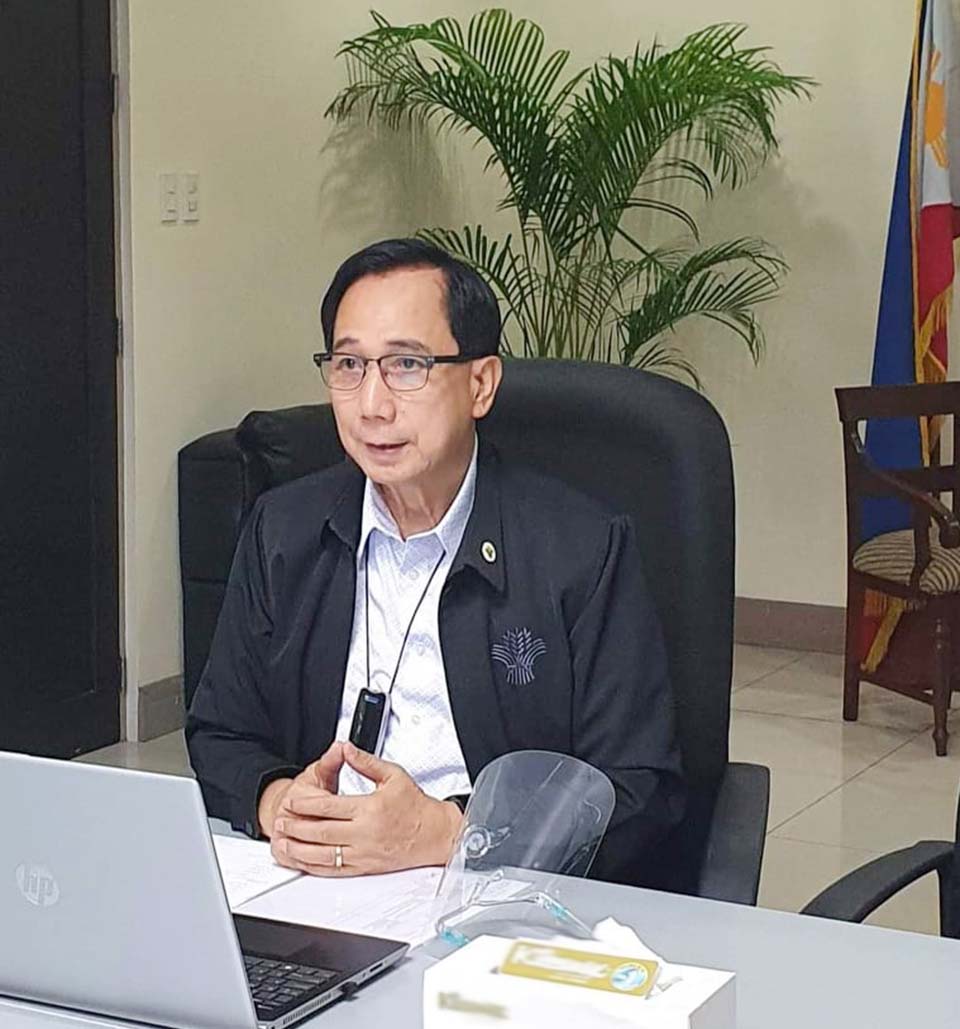
Agriculture Secretary William Dar expressed his full support to the Civil Society Organizations (CSOs) in helping the Department co-implement its food security thrusts by addressing policy issues and concerns on the accreditation processes.
“With the help of the CSO partners in ensuring effective and efficient implementation of Department of Agriculture’s (DA) food security thrusts, I believe that we can increase food sufficiency, additional budget support, and faster adoption of modern technology in the agriculture sector,” said Sec. Dar.
The move was the result of a dialogue between Sec. Dar and the Agri-Fishery Alliance and Cooperative- National Confederation of Cooperatives (COOP-NATCCO) Partylist Representative Sabiniano Canama on August 13, 2020.
Rep. Canama seeks the support of the DA to ease the requirement for accreditation, in particular, the Certificate of Tax Exemption (CTE) for farmers and fishers cooperatives, after the Bureau of Internal Revenue’s (BIR) bid to “cleanse” coops that are taking advantage of the tax exemption.
DA also recognized coops and other associations as main channels of government assistance for rural development particularly in providing farm inputs, farm machineries and equipment.
In a report in 2019, BIR recorded only more than 6,000 out of 18,000 operating coops were able to secure their CTEs. Rep. Canama cited that the drop of numbers happened because coops don’t have tax identification numbers (TIN), which they argued should not be part of the CTE requirements.
He reiterated that although the group supports BIR’s efforts, COOP-NATCCO Partylist representative pointed out that most of the cooperative members in the marginalized sectors experienced difficulties in acquiring TIN, and some documentary requirements to acquire CTE.
He also added that based on Republic Act 9520, Article 60 and 61, duly registered coops should not be required for a TIN because they are already tax exempted. Rep. Canama also presented the “demands” of the coop leaders. These includes:
1.) Should not require CTE because the Certificate of Registration, Certificate of Compliance, and Certificate of Good Standing issued by the Cooperative Development Authority (CDA) to a duly registered coops are enough
2.) Exempt coops from Real Property Tax in accordance with the Local Government Code of 1991
3.) Uphold and respect the above mentioned laws
4.) Recognize and support the efforts of coops
Aside from the non-issuance of CTEs to many coops, Rep. Canama further discussed the CSOs’ challenges during the pandemic like capacitating old farmer cooperative members in terms of operating equipment and providing technical skills in online meetings.
Although DA has not yet issued a statement on the matter, the Philippine Council for Agriculture and Fisheries (PCAF), which serves as the chair of the DA CSO Accreditation National Technical Committee, promised to extend its help in easing such requirement.
PCAF Acting Executive Director Liza Battad also clarified that PCAF supports Rep. Canama’s request on the easing of CTE requirements because the majority of the cooperatives are from the marginal sector of society and the agency also complies to RA 11032 or the Ease of Doing Business and Efficient Government Service Delivery Act of 2018, which aims to streamline the current systems and procedures of government services.
The easing of the requirements will be discussed in the next meeting of PCAF CSO Technical Working Group.
As of this writing, PCAF is validating 6,600 CDA-accredited agriculture and fishery cooperatives to be part of the agency’s network of volunteer organizations called Agricultural and Fishery Councils. PCAF already has 620 organizations, composed of 130 at the regional level and 490 at the local level, with at least 1.2 million members. ### JC











